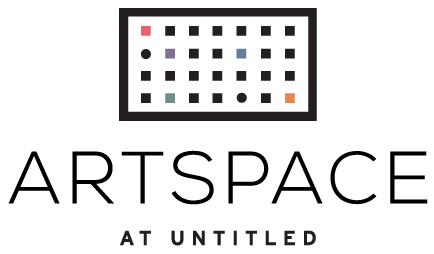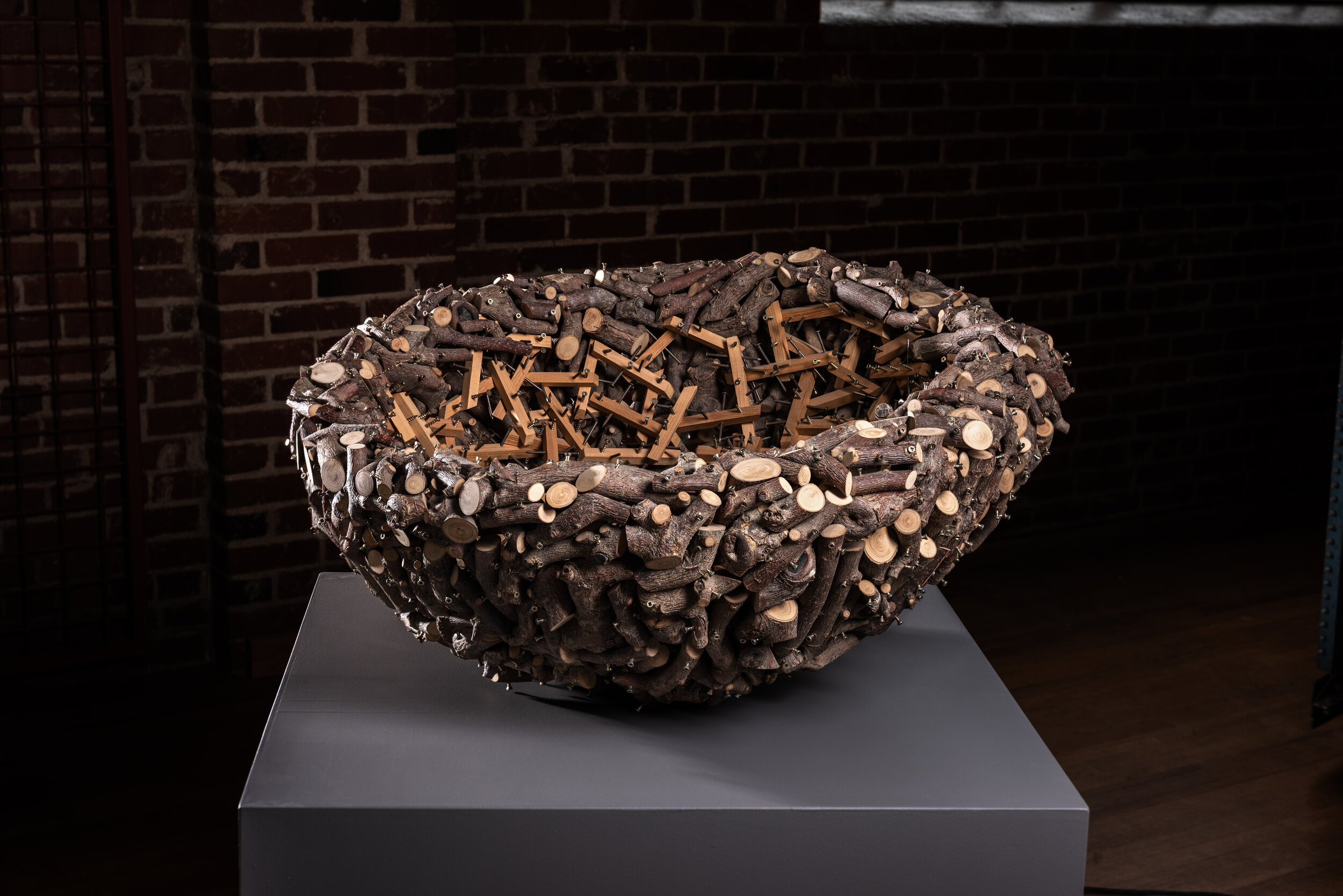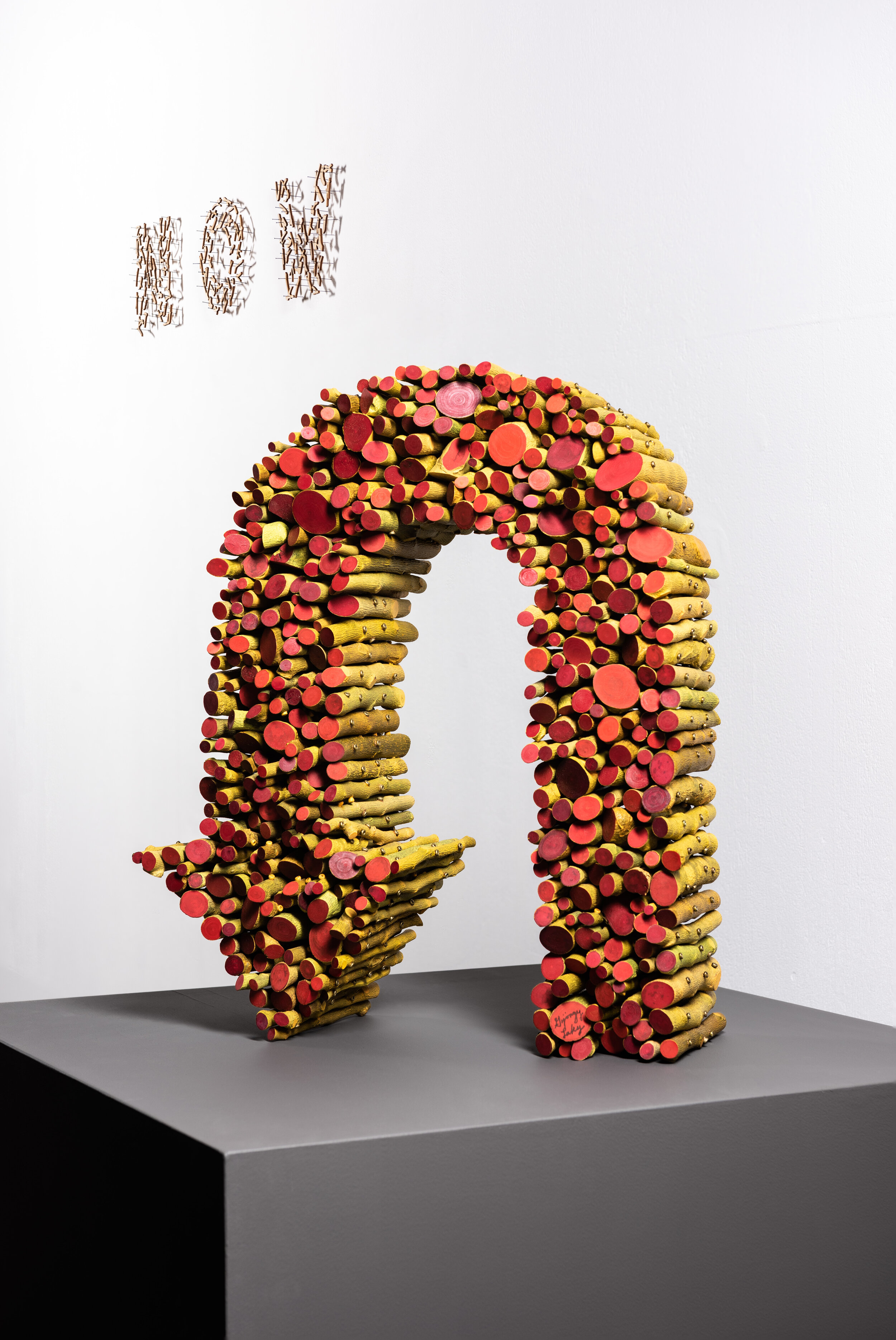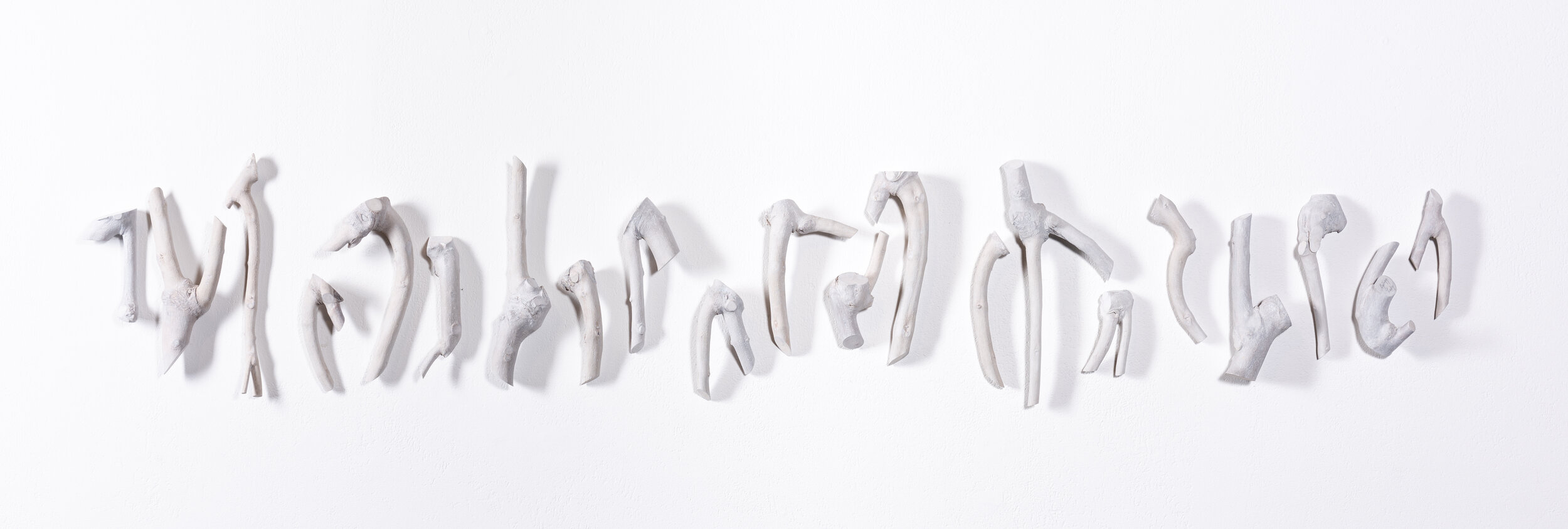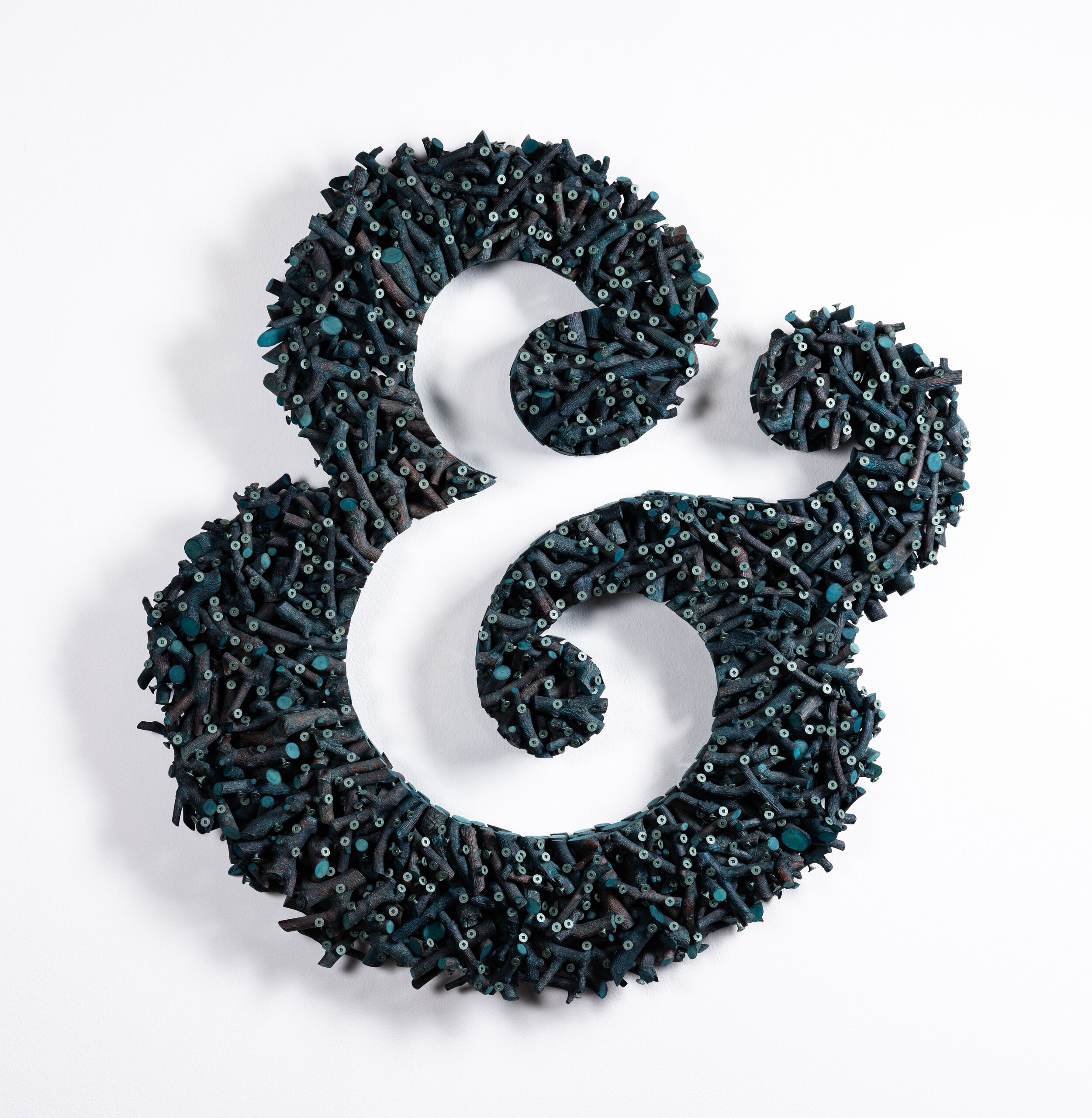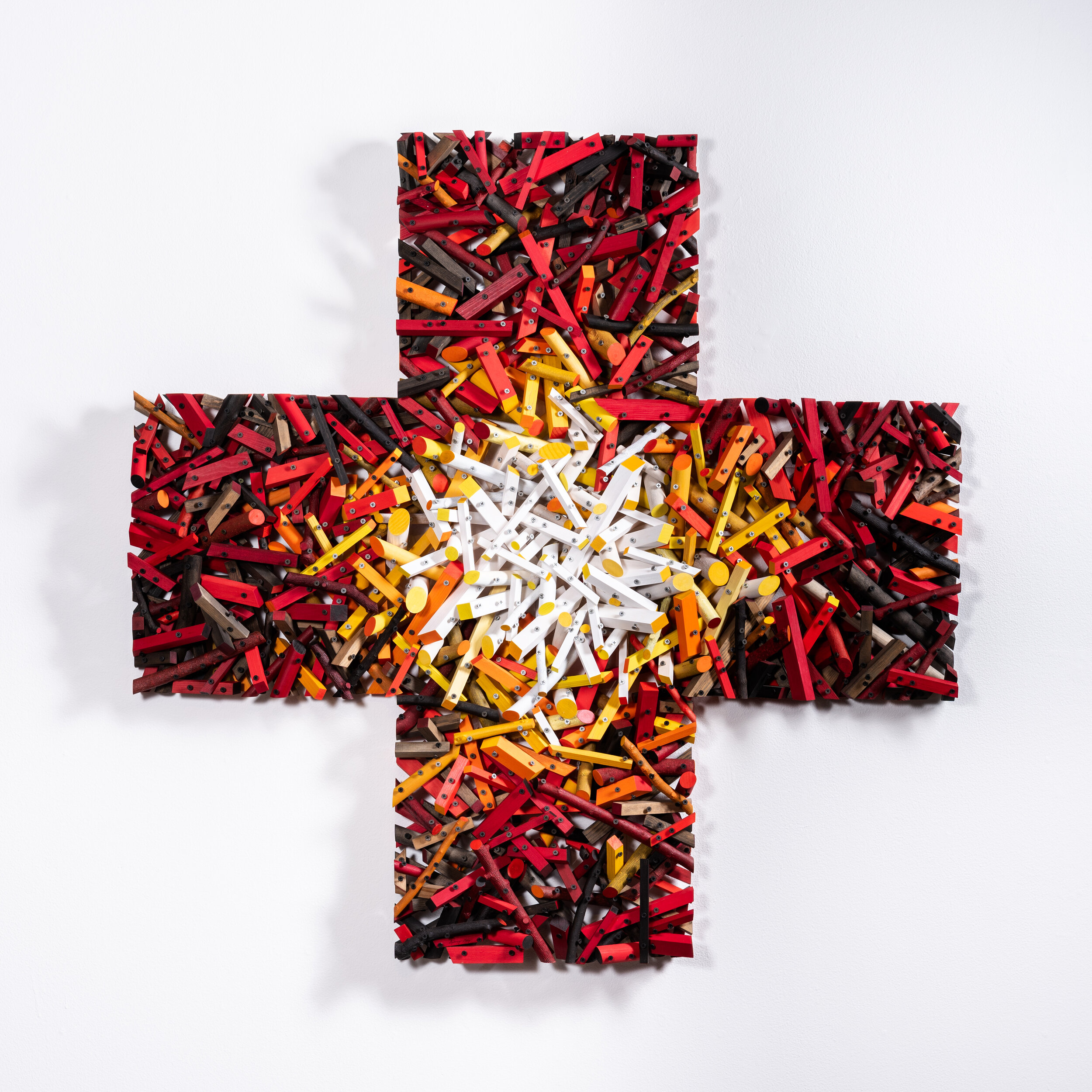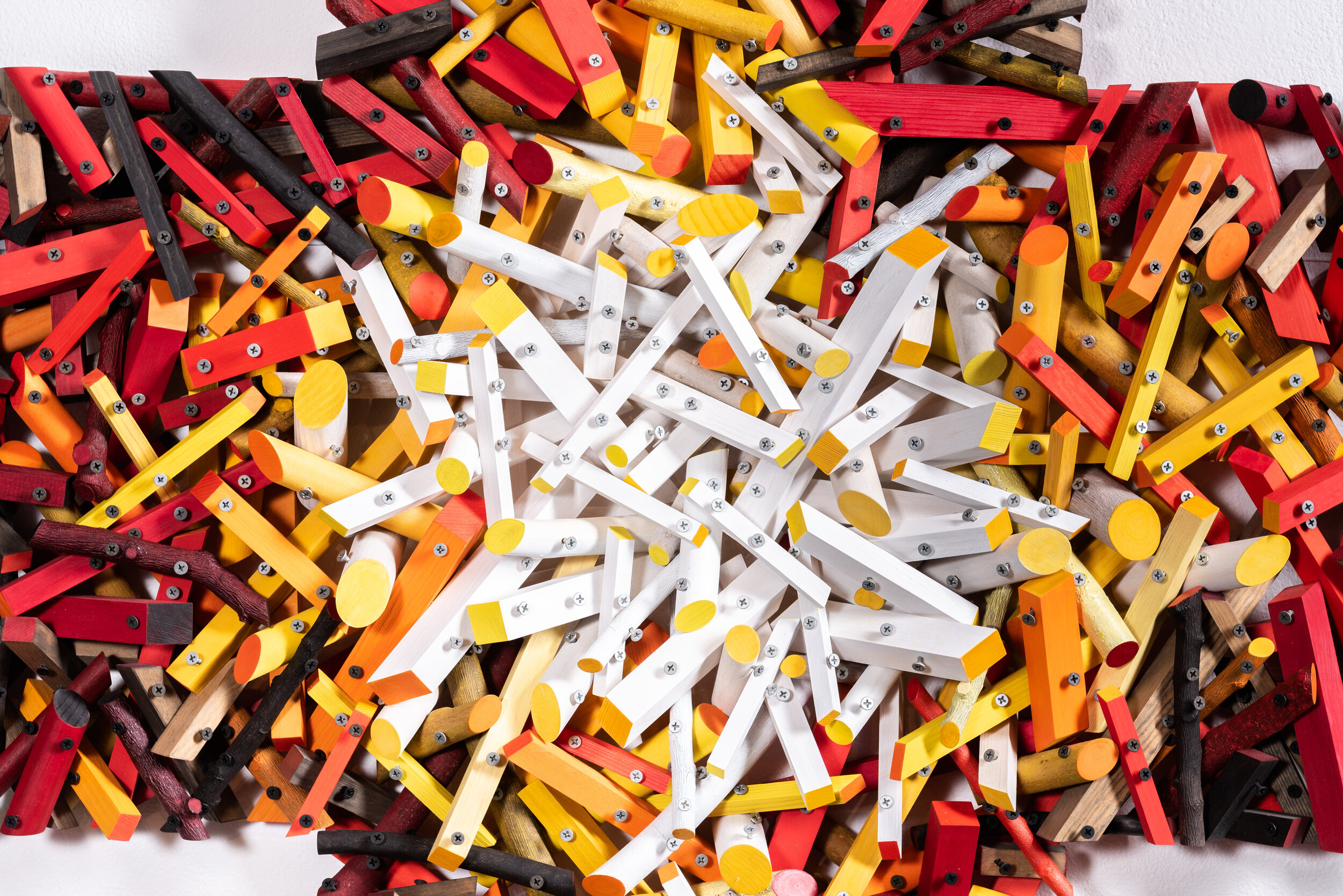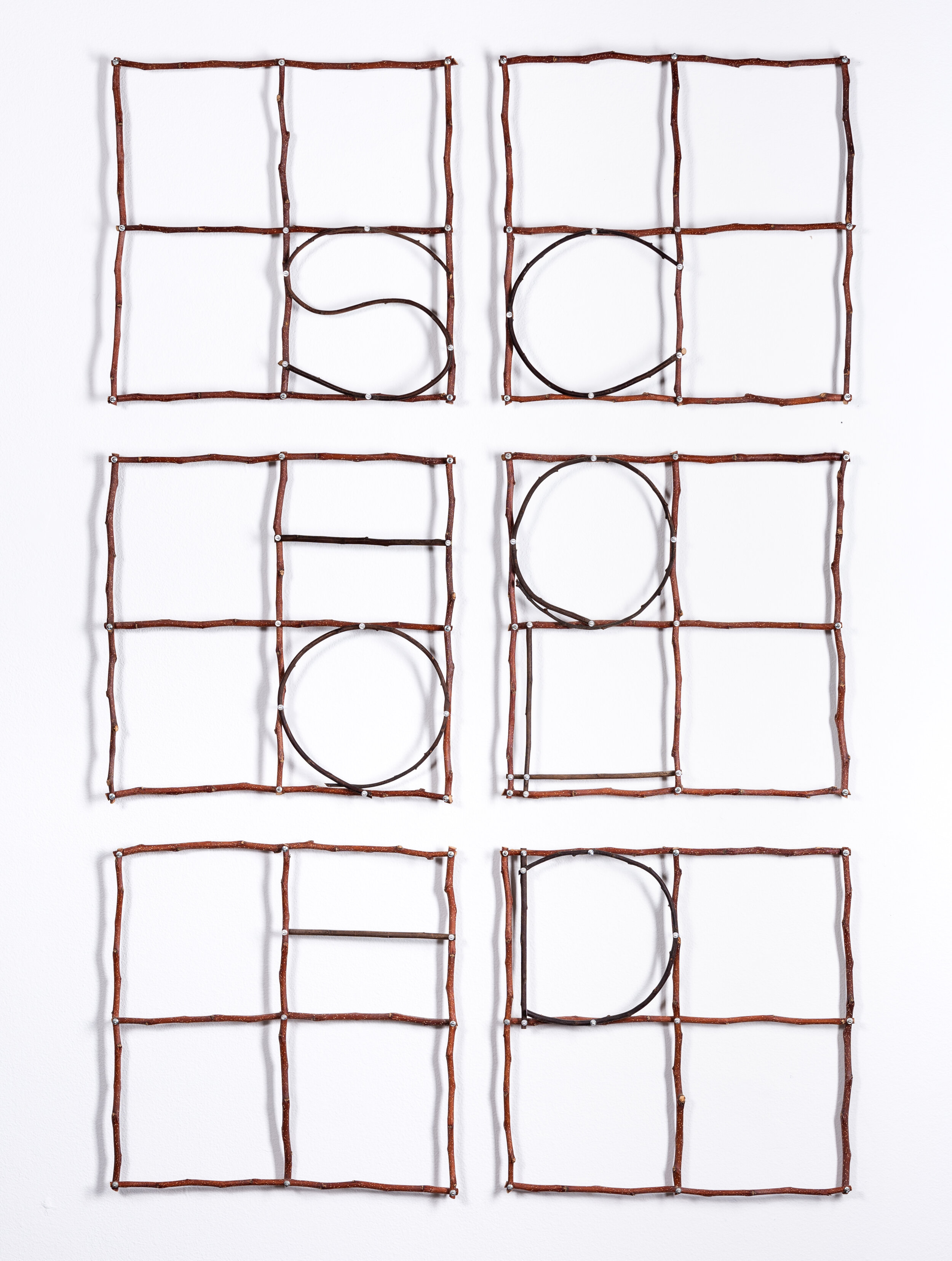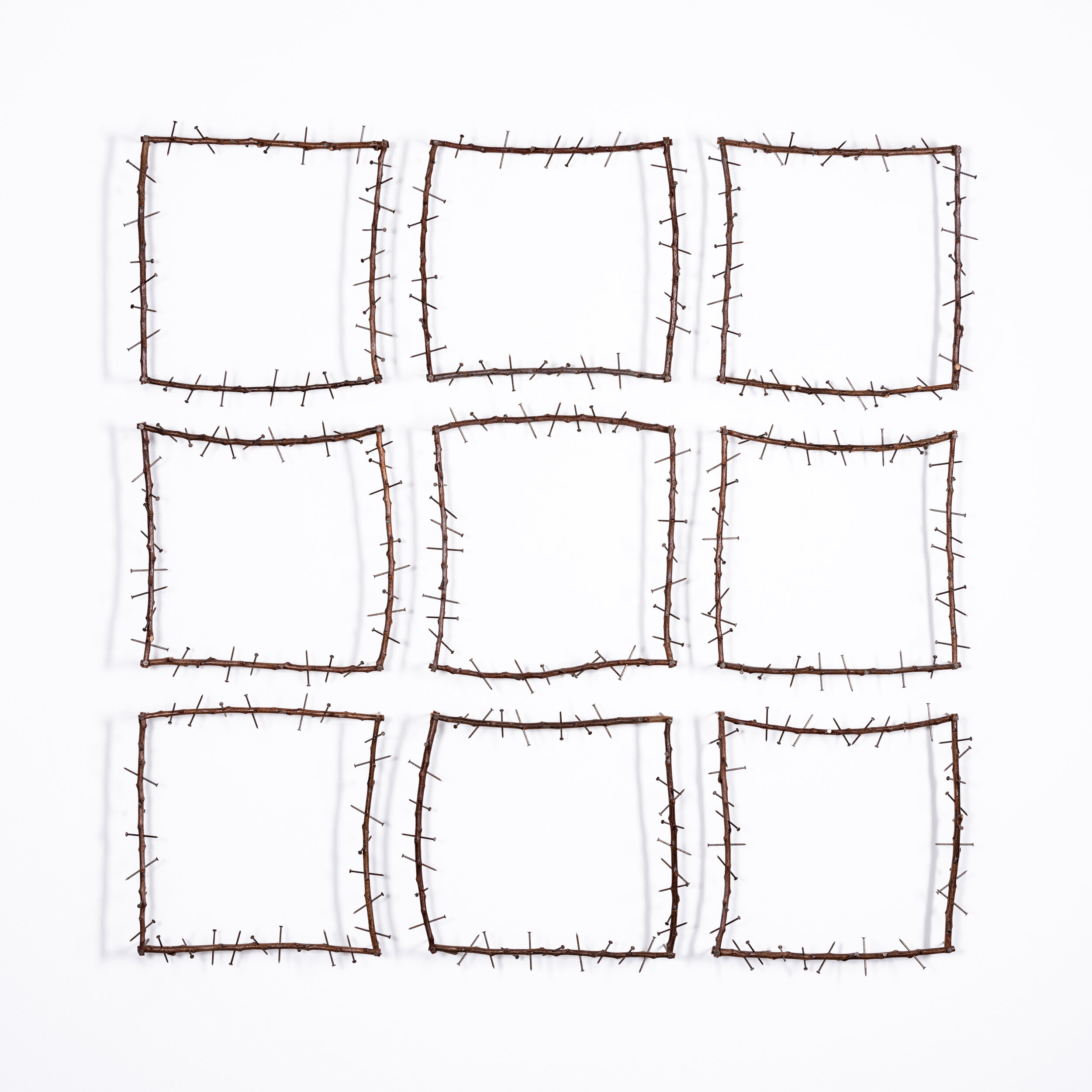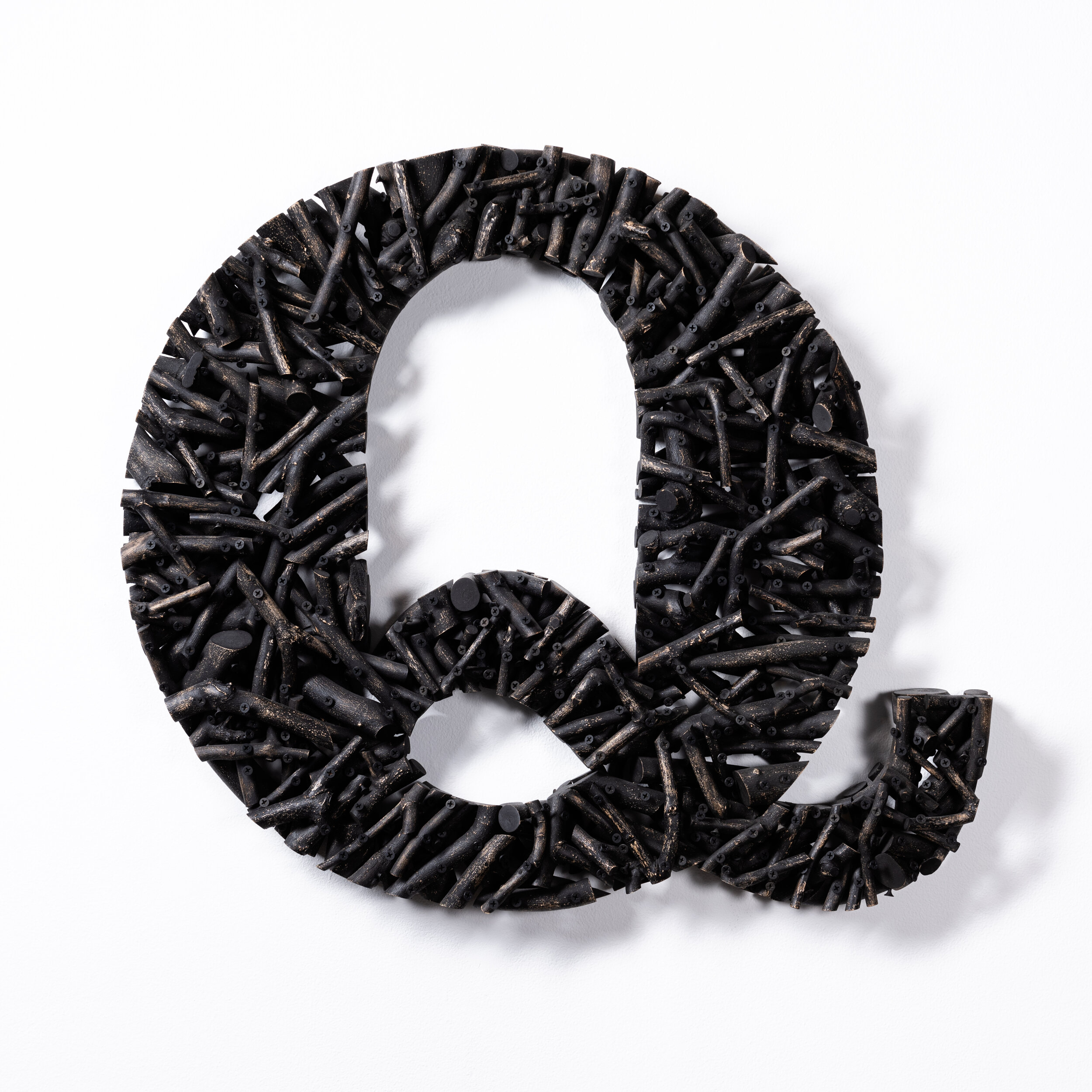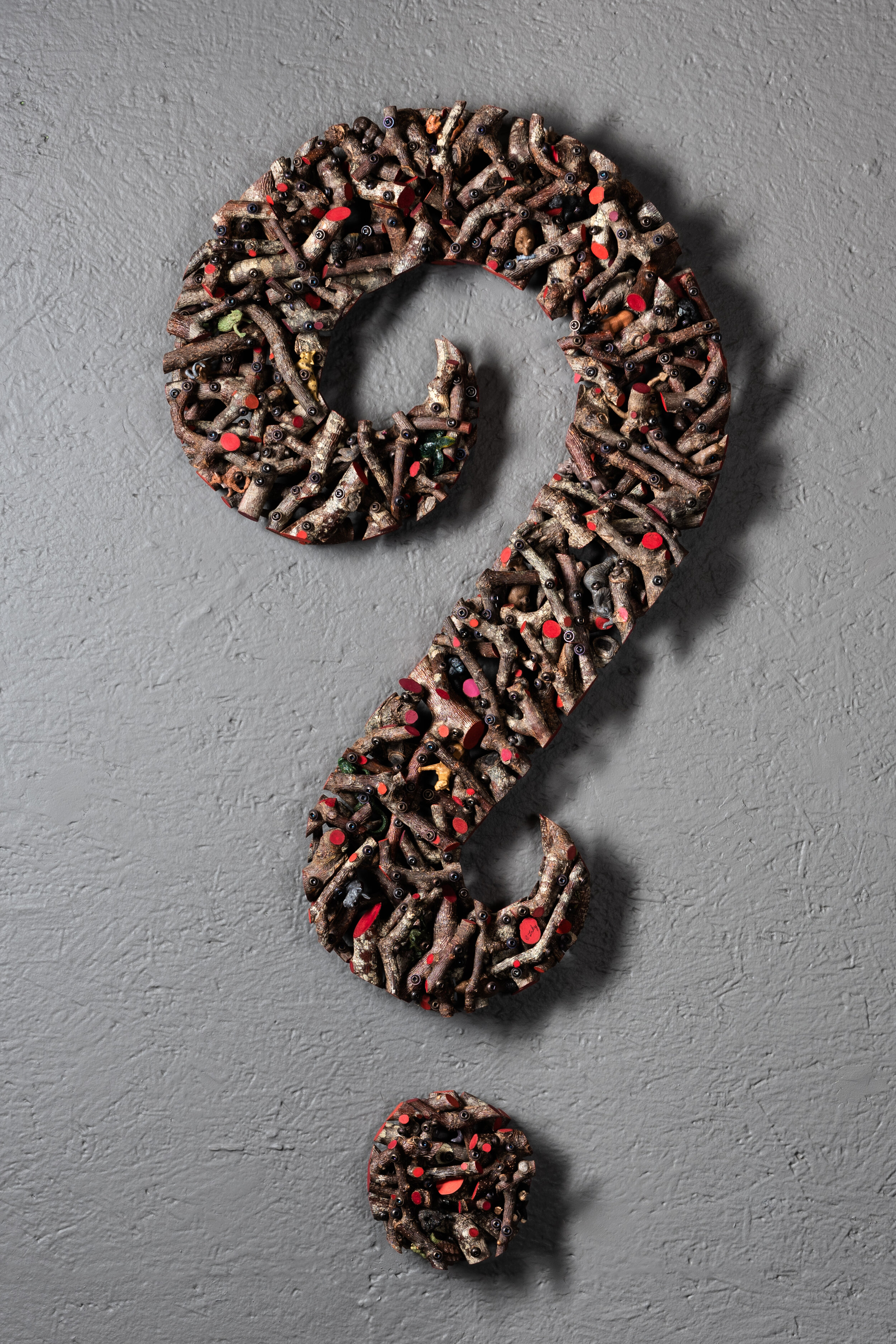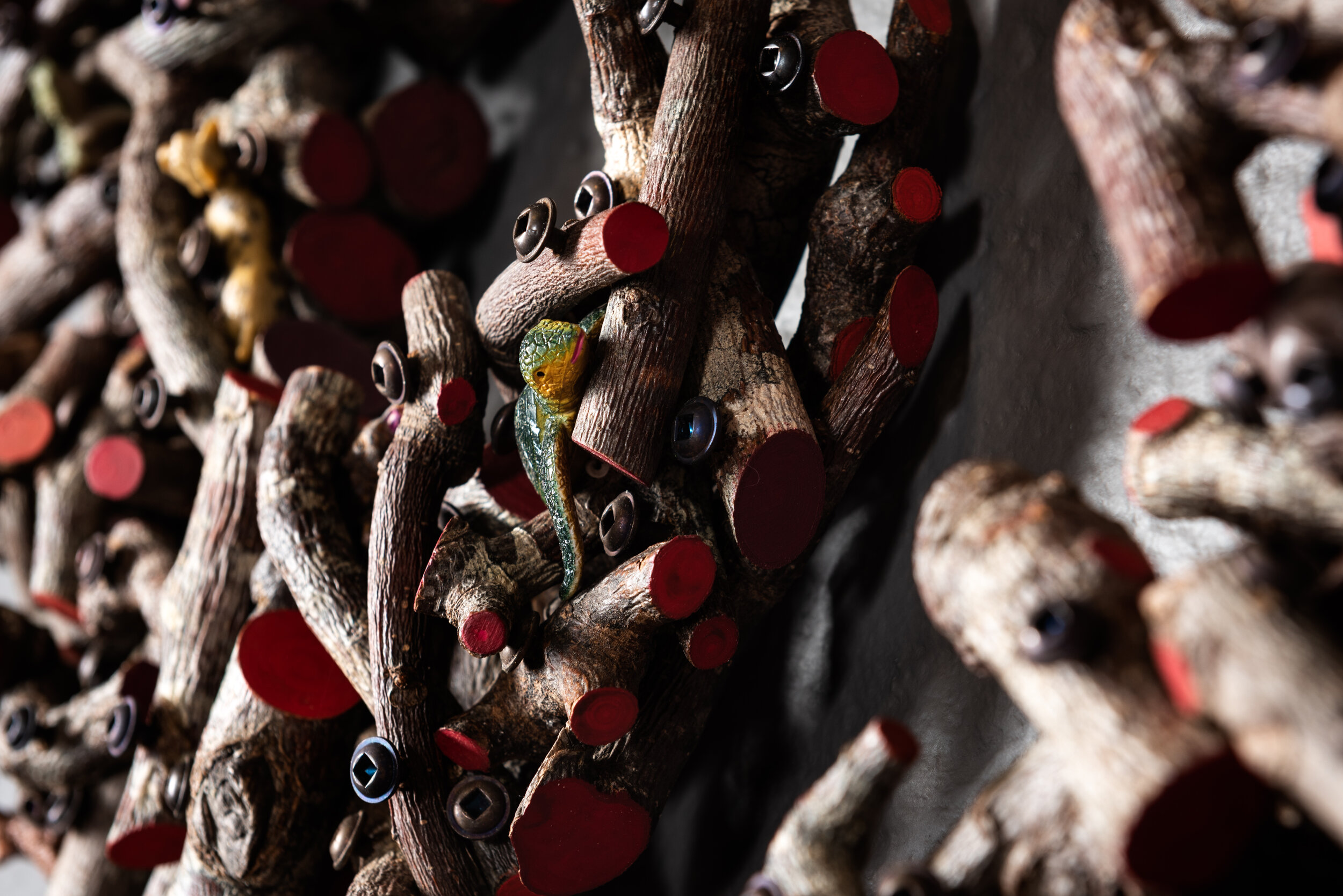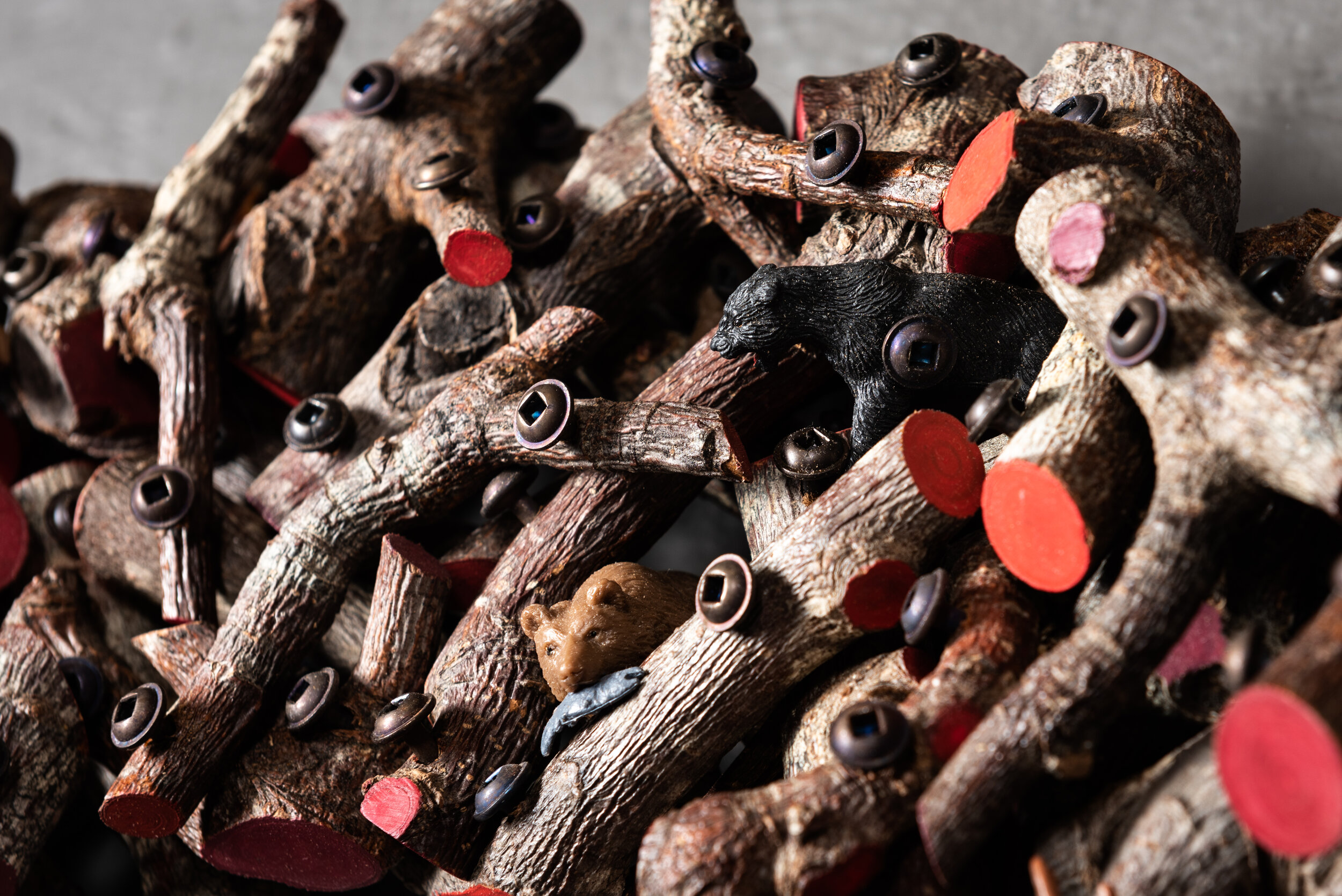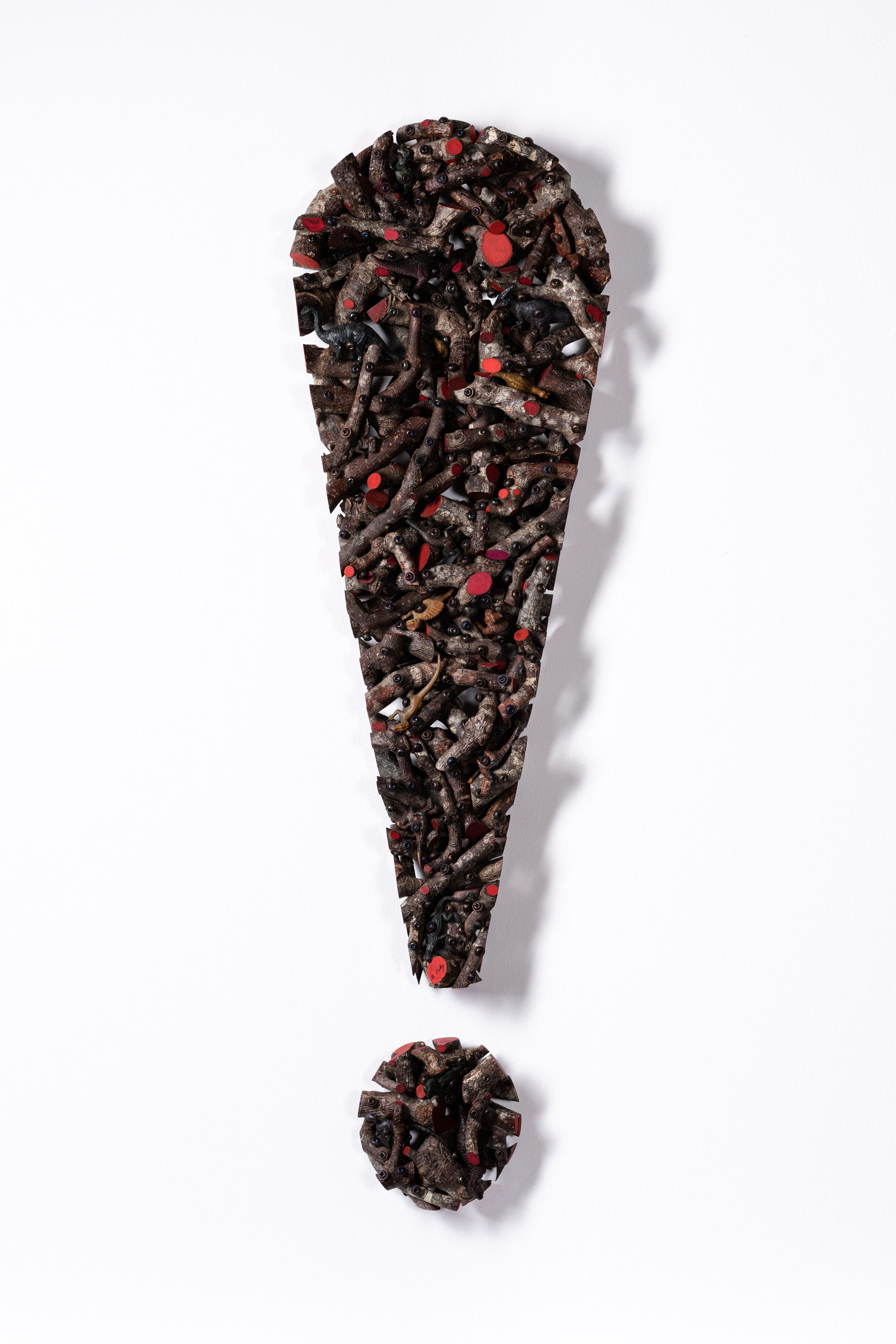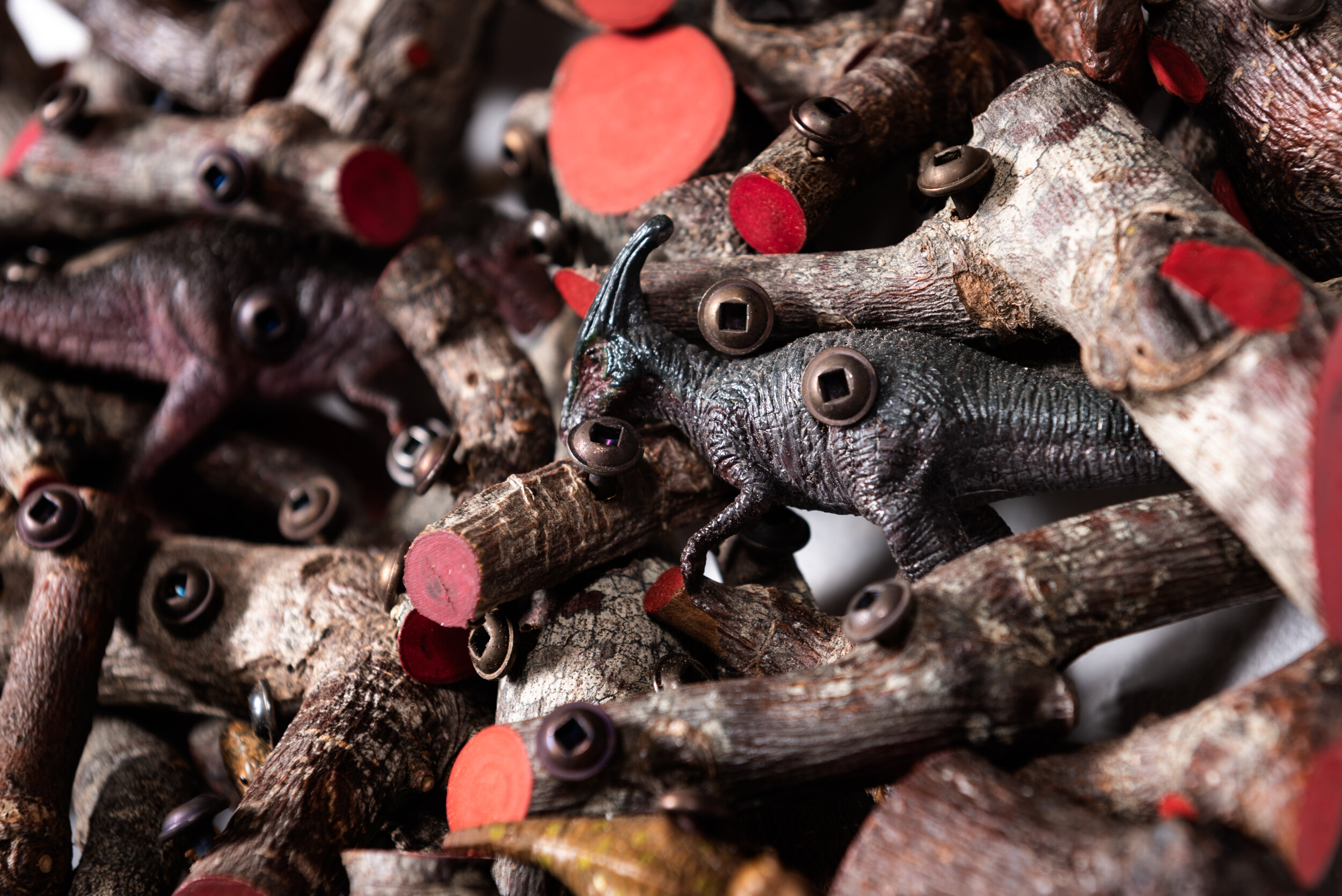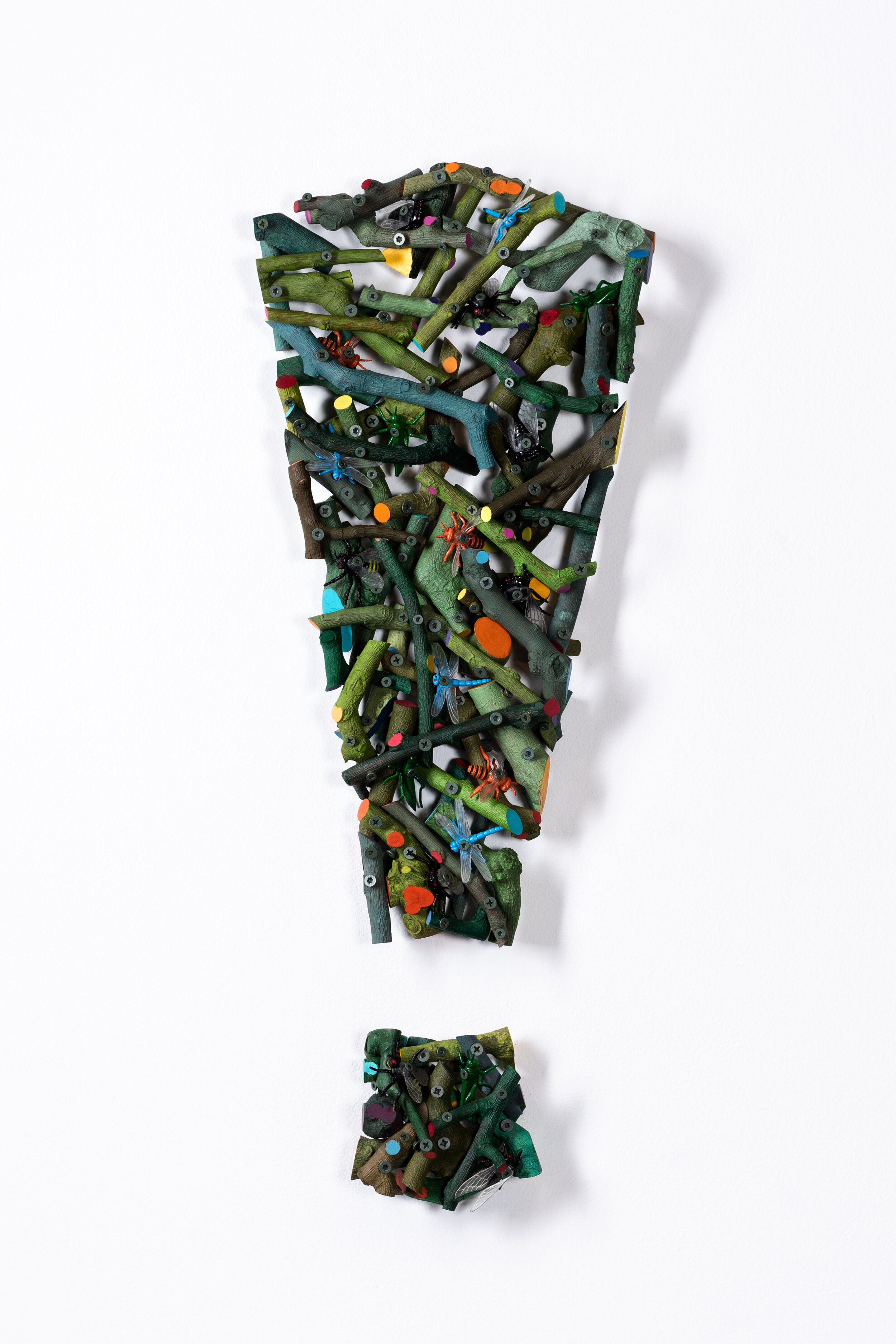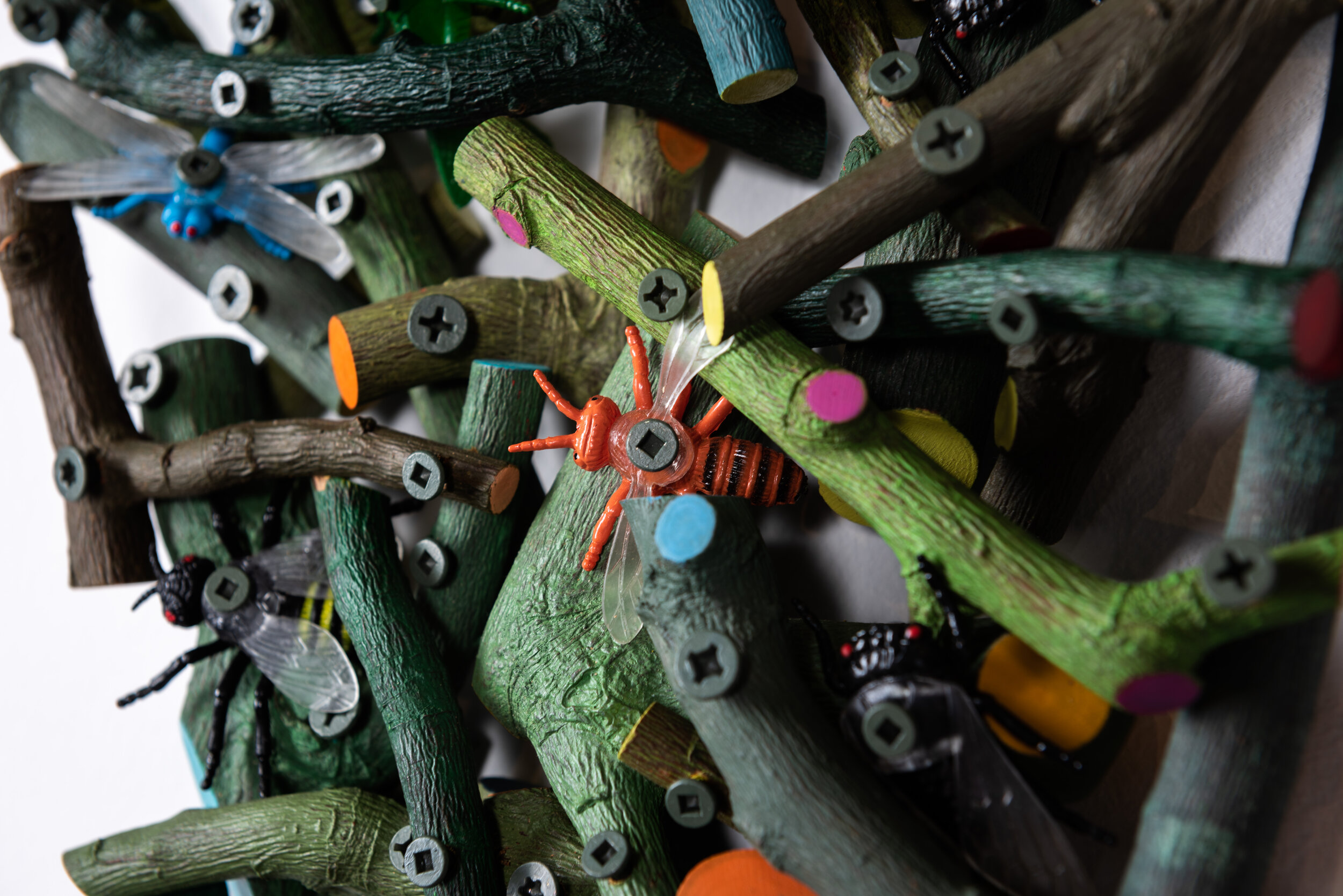FORMS FOR LANGUAGE
AN EXHIBITION BY GYÖNGY LAKY
SEPTEMBER 12, 2019 – OCTOBER 31, 2019
ARTSPACE at Untitled is excited to debut the original artworks of Gyöngy Laky in conjunction with the Wilson Elementary centennial celebration. Born in Budapest, Hungary, Laky emigrated to the United States as a small child and spent several years in Oklahoma City. She completed her undergraduate and graduate studies at the University of California, Berkeley. Afterward, she founded the internationally recognized Fiberworks, Center for the Textile Arts, in Berkeley. Gyöngy Laky taught on the collegiate level for twenty-seven years, and is a professor emerita of the University of California, Davis. She currently lives and works in the San Francisco Bay area.
Through material choices and subject selection, Laky’s sculptural constructions of wood, wire, screws, nails, and occasional unexpected items, create shapes and forms of letters and symbols. She is attracted to humble materials and simple, direct methods of hand construction that are associated with basic human ingenuity and the artist’s own fascination with puzzles. Laky specified, “whether grids, vessels, language related sculptures or abstracted architectural forms, I want my work to cue a combined sensory and mental experience through the relationship between what is tangible and tactile and what is metaphorical and suggested.” Themes of her sculptures and site-specific works touch upon various issues including gender-equality, consumerism, healthcare, global warming and her opposition to war. These subjects are often presented through her language sculptures, many of which are featured here in Forms for Language.
A compelling but subtle piece in this exhibition is a collection of severed branches called Climate Fugue 21. The desire for her pieces to seem like a sentence or to make a symbol, single word, sign or object function like a narrative is prevalent. These symbol systems, as she calls them, function to remind us how we process information. Her title is a play on the word fugue, which in music is a term for a theme that plays repeatedly throughout a movement. Although her concerns cross a variety of subjects and social issues, Laky has long considered herself an environmentalist and her choice of materials often reflects a deep commitment to sustainability.
In Forms for Language, the viewer is allowed into a personal but accessible space. “The work presented in this exhibition, while employing my usual materials, includes newer works that take the form of assembled arrangement of parts - marks on a wall - without the use of any structuring. I am particularly interested in symbolic systems such as the letters of a writing system, characters, elements, graphic representations, hieroglyphs, ideographs, morphemes, calligraphs, pictographs, runes, signs, or syllabary.” The items, objects, words, and elements that are used to inform each piece are relatable to a wide variety of audiences. Laky’s sculptures employ a disruptive and sometimes punning strategy, visible in the interplay between the objects and their titles; i.e. When?, (Now). Laky’s work requires the viewer to look at text from a new angle and from multiple perspectives, inferring that natural forms are somehow analogous to those humans use to communicate.
ARTSPACE at Untitled is fortunate to exhibit Gyöngy Laky’s solo exhibition of Forms for Language. Her innovative eye for unique mediums and ability to convey powerful messages is clear in the striking works showcased by this exhibition. As an artist, Laky continues to work in both sculptural forms and textile arts. Many of her works are exhibited and collected by museums and galleries throughout the United States, as well as in France, Sweden, Italy, Denmark, Holland, Switzerland, Hungary, Lithuania, Colombia, the Philippines, and China. A past recipient of a National Endowment for the Arts Fellowship, Laky’s work is in many permanent collections, including the San Francisco MOMA, The Smithsonian’s Renwick Museum of American Art, the Philadelphia Museum of Art, the Oakland Museum, the Contemporary Museum in Honolulu.
Photos: Evan Beasley
This exhibition is a full circle for me. My family escaped Hungary following the turbulence and dangers in the aftermath of World War II. Our refugee family of 5 was sponsored by the Stocker family of 5 on the shore of Lake Erie, Lorain, OH. After a year of loving care our first independent home was Oklahoma City in 1950. We were welcomed and nurtured by the good people of OKC. This is my first visit back since 3rd grade at Wilson Elementary School.
- Gyöngy Laky
ABOUT GYÖNGY LAKY
GYÖNGY LAKY 's sculptural forms are exhibited in museums and galleries throughout the United States. Internationally, her work has been exhibited in France, Sweden, Italy, Denmark, Holland, Switzerland, Hungary, Lithuania, Colombia, the Philippines and China (with one-person exhibitions in Spain, Denmark and England). She is also known for her outdoor site-specific installations which have occurred in the US, Canada, England, France, Austria and Bulgaria.
A past recipient of a National Endowment for the Arts Fellowship, Laky was also one of the first textile artists to be commissioned by the Federal Art-in-Architecture Program. Her work is in many permanent collections including the San Francisco MOMA, The Smithsonian's Renwick Museum of American Art, the Philadelphia Museum of Art, the Oakland Museum, the Contemporary Museum in Honolulu and others (see "Collections").
She was one of a team of three to develop a comprehensive Arts Master Plan for the new state-of-the-art, 130 acre, Federal Food and Drug Administration campus being built in Maryland. Her work is featured in a video, by Odyssey Video (England), and is included in over 20 books. In 2003, Portfolio Series: Gyöngy Laky, by Janet Koplos, was published in England ( Telos Art Publishing) and the Bancroft Library at the University of California, Berkeley, released her oral history.
Laky was born in Budapest, Hungary, in 1944 and emigrated to the United States as a small child. She graduated from Carmel High School and completed undergraduate and graduate studies at the University of California, Berkeley (1967-1971). Postgraduate work followed with the UC Professional Studies Program in India . Upon her return, she founded the internationally recognized Fiberworks, Center for the Textile Arts, in Berkeley, with accredited undergraduate and graduate programs. She is a professor emerita of the University of California, Davis (Chair, Department of Art, 1995-1997).
